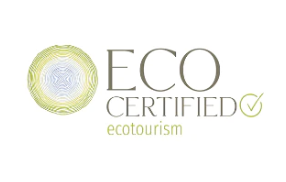Our long term presenter, Dr Karen Coates was recently featured in Body and Soul for her new book launch with Sharon Kolkka, How To Be Well: A Handbook For Women. The book is designed as a guide to their innovative five-pillared approach to wellness and a personal health audit to empower women along their path to better energy, vitality and stress resilience. Find an overview of the five pillars, as written by Dr Karen Coates.
How To Be Well: A Handbook For Women available for purchase from the Gwinganna shop.
Written by Dr Karen Coates.
After spending more than 30 years in clinical practice as an integrative medical doctor, I’ve come to realise that optimal wellness is rarely found in a doctor’s consulting room.
Seeing patients from all walks of life and across all age groups has helped me to develop a blueprint for better health and wellness – and it’s not as complicated as you might think.
Getting back to the foundations of good health is as simple as following my five pillars of wellness. These pillars work concurrently to ensure that you feel and look your best, regardless of your biological age, and help you to obtain optimal health with a balanced physical, mental and emotional state.
When one or more pillars are out of balance, you can experience discomfort, pain or illness that affects the quality of your life. Listen to your body and concentrate on the pillars that need immediate attention – the others can wait while you commit to lifestyle changes that will help move you towards a thriving state of being.
Five Pillars of Women’s Health
1. NOURISHMENT
Nourishment is about more than just the food you eat - it’s also about your body’s ability to absorb the nutrients that come from a well-balanced diet. Maintaining a healthy gut is key to ensuring that the food on your plate reaches every cell of your body.
Plant-based food, such as leafy green vegetables, is the foundation of good health. Research is clear here: the addition of at least 650g of vegetables to your diet every day supports healthy ageing and longevity.
2. FUNCTIONAL MOVEMENT
Hitting a target of at least 7000 steps a day supports more than 4000 “favourable” genes in your body, which improves the efficiency of your immune system and good mood hormone production. Try pairing an activity tracker or app with a friend for motivation to hit competitive weekly movement goals. Don’t overtrain, though, as more of a good thing is not necessarily better.
3. EMOTIONAL WELLBEING AND STRESS RESILIENCE
Spend more time in your “blue zone”, which is where your nervous system gets a chance to rest. Blue zone activities (such as diaphragmatic breathing, reading, massage and walking in nature) serve to modulate the stress response that drives destructive levels of adrenaline and cortisol.
Even if you can only manage 20 minutes of regular downtime, it can really improve your day-to-day productivity. Try giving yourself permission to have a “strategic rest” session in the afternoon. Turn off all of your electronic devices and retreat to a quiet space where you can start to connect with calm.
4. QUALITY SLEEP
Having a decent night’s sleep is as essential to wellbeing as food and water are, and it needs to be prioritised if you want to thrive. Avoid the common saboteurs of sleep, such as caffeine, alcohol and sugar, and also reduce your exposure to artificial light in the hour before bedtime.
Pistachios are a natural source of the sleep hormone melatonin. One handful makes for a healthy after-dinner snack that supports good quality sleep.
5. REDUCED TOXIC LOAD
Every year, humans make and release more than 2000 new chemicals into the world. Only a quarter of the estimated 80,000 chemicals present in our environment today have been tested for toxicity and, even then, the additive effect of hundreds of chemicals has never been defined.
Reducing your body’s toxic load is simply a non-negotiable for optimal wellbeing. Start by making simple changes at home; become an avid label reader and say no to products with unpronounceable ingredients not found in nature.




